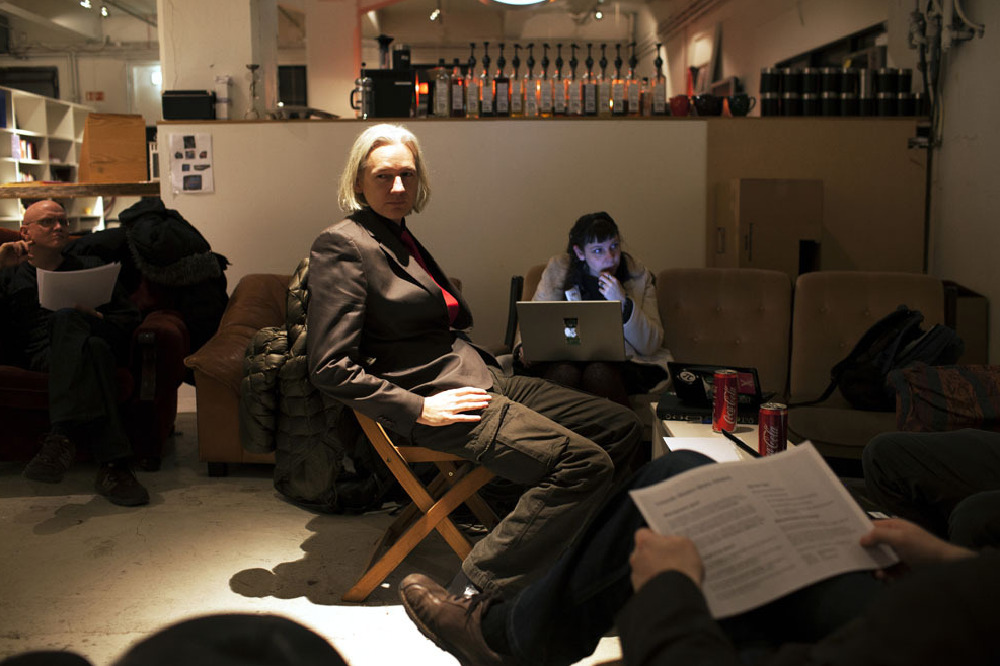
We Steal Secrets: The Story of Wikileaks
Whether you agree with their message or not, the authors of these documentaries give light to some situations, opinions and stories that the general public may not have considered.
From Bill Maher’s sarcastic and potentially offensive Religulous, to Alex Gibney’s soon to be released WikiLeaks chronicle: We Steal Secrets, these films inform, question, amaze, and prove that truth really can be stranger than fiction.
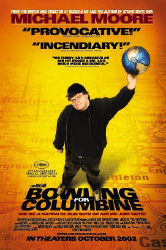 - Bowling for Columbine (2002)
- Bowling for Columbine (2002)
Famous for his anti-right wing political rhetoric and social criticism, Michael Moore has produced a number of extremely successful documentaries including Bowling for Columbine.
This scathing documentary ponders the American fascination with guns and the possible causes for the Columbine High School massacre along with other acts of violence involving guns.
Though this documentary received a large amount of criticism, it won the 55th Anniversary Prize at the 2002 Cannes Film Festival, and in 2003 it won Best Documentary of All Time from the International Documentary Association and an Academy Award for Best Documentary Feature.
It was also voted third most popular film in Channel 4’s The 50 Greatest Documentaries of all time.
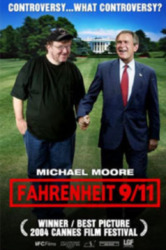 - Fahrenheit 9/11 (2004)
- Fahrenheit 9/11 (2004)
Fahrenheit 9/11 is another of Michael Moore’s many extremely controversial but highly successes documentaries. It is the highest grossing documentary of all time, raking in over $200 million worldwide.
This documentary won the prestigious Best Picture award at the 2004 Cannes Film Festival and a number of other awards including People’s Choice award for Favourite Motion Picture, which is rarely awarded to documentaries.
With a tagline like 'The Temperature at Which Freedom Burns,' this documentary about post 9/11 America and the Bush Administration is poised for provocation.
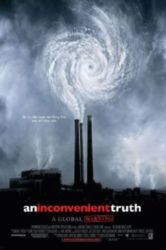 - An Inconvenient Truth (2006)
- An Inconvenient Truth (2006)
This poignantly titled documentary has been recognized for raising international public awareness concerning the issue of global warming.
Narrated and presented by Al Gore, this film received a large amount of criticism for false science and being created as a tool of another presidential campaign for Gore.
Despite this, An Inconvenient Truth has been made available for use as curriculum at schools in parts of Spain, Germany, Canada, the United States, and the United Kingdom and won a number of awards around the world.
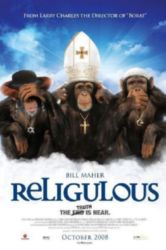 - Religulous (2008)
- Religulous (2008)
Not recommended for the deeply religious viewer, this documentary follows comedian Bill Maher as he speaks to various religious figures, examining and questioning the practices of modern day organized religion.
Written and directed by Bill Maher, who was voted number 38 on American TV station Comedy Central’s 100 greatest stand-up comedians of all time, Religulous exemplifies Bill Maher’s distinct humour and is a must see for fellow religious sceptics.
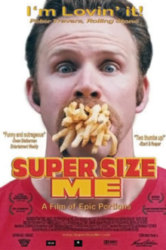 - Supersize Me (2004)
- Supersize Me (2004)
Directed, produced, written, and presented by Morgan Spurlock, Supersize Me watches Spurlock through his experiment into the effects of eating McDonald’s fast food every day, for every meal in a 30-day period.
Over the course of the month, Spurlock suffers from a number of health issues, gains a large amount of weight, loses muscle mass and increases his body fat by about 13%.
While it is a serious comment on the effects of fast food and obesity, this documentary is often light-hearted and funny and will make you question your own food consumption.
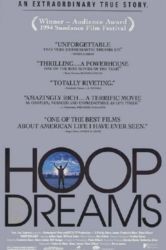 - Hoop Dreams (1994)
- Hoop Dreams (1994)
Hoop Dreams is a sports documentary that follows the struggle of two aspiring NBA players and their families living in a predominantly white society.
Originally intended to be a 30-minute public television special to be filmed over 3 weeks, the special turned into a documentary/feature-film lasting over 3 hours.
In 2007 Hoop Dreams was voted to be the number 1 documentary by the International Documentary Association out of over 700 titles. Though focusing on the struggle of finding success in basketball, this documentary raises issues regarding education, economic class divisions, and race in America.
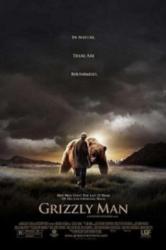 - Grizzly Man (2005)
- Grizzly Man (2005)
Timothy Treadwell was a bear enthusiast who spent 13 summers in Katmai National Park and Preserve in Alaska observing and interacting with grizzly bears, and was eventually killed and eaten by a bear in 2003.
Grizzly Man is a mix of footage shot by Treatwell himself and interviews with park rangers, family members and friends who warned Treadwell about his dangerous behaviour.
This film Werner Herzog was nominated for the Sundance Grand Jury Prize in 2005 and is an intriguing view into the life of a man with an obsession that ended up killing him.
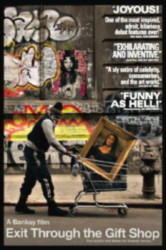 - Banksy’s Exit Through the Gift Shop
- Banksy’s Exit Through the Gift Shop
Despite having an extremely limited opening in theatres and making a comparatively small amount of money, Exit Through the Gift Shop has been critically acclaimed and was nominated for Best Documentary in the 2011 Academy Awards.
It tells the story of a French immigrant, Thierry Guetta, who is constantly carrying around a video camera and develops a fascination with street artists, resulting in hundreds of hours of footage showing extremely secretive street artists working (though most of it deemed unusable).
There were many questions of the film’s credibility, potentially as a result of it being directed by Banksy, a street artist whose real identity is entirely unknown. Regardless, it’s an interesting comment on how we label art itself and the people who create it.
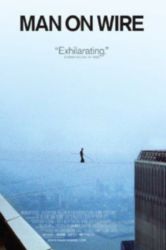 - Man On Wire (2008)
- Man On Wire (2008)
This BAFTA and Oscar winning documentary looks at French tightrope walker Philippe Petit’s illegal walk between the World Trade Centre’s Twin Towers in 1974.
It begins with the conception of the plan to rig the tightrope across the Twin Towers, and because of the flow and feel of this film, it is often accused of being a heist film rather than a documentary. The dramatisations and reconstructions of the real life events bring the viewer into the moment and make this one of the top ten documentaries.
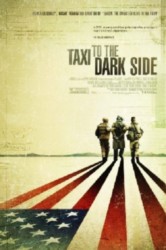 - Taxi to the Dark Side (2007)
- Taxi to the Dark Side (2007)
Taxi to the Dark Side examines the life and death of Dilawar, an Afghan taxi driver who was taken prisoner and falsely accused by American Soldiers to have been involved in a deadly rocket attack. Dilawar was eventually beaten and killed by these soldiers.
By highlighting the story of Diliwar, director Alex Gibney spotlights the atrocities of torture performed at Abu Ghraib, Guantanamo and Bagram, and the responsibility of the administration allowing it to happen. This chilling documentary won the Best Documentary Feature Academy Award in 2008.
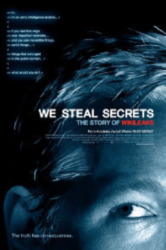 - We Steal Secrets: The Story of Wikileaks (2013)
- We Steal Secrets: The Story of Wikileaks (2013)
Critically acclaimed documentary director Alex Gibney is bringing us another in-depth look into questions of modern day society.
This documentary looks at Julian Assange, the information released on the WikiLeaks website, and one of the largest security breaches in U.S. history.
It brings our attention to the question of transparency in the information age and the effects on our society because of it.
We Steal Secrets: The Story of Wikileaks is in cinemas July 12.

